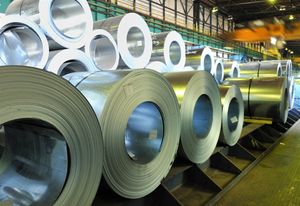As climate regulations tighten and consumer demand for sustainability increases, logistics is undergoing a quiet but powerful transformation. The traditional model of moving goods, often seen as environmentally costly and operationally rigid, is being replaced with smarter, greener, and more tech-driven systems.
This shift is not just reshaping supply chains. It is unlocking fresh investment opportunities for those looking to fund scalable solutions that sit at the intersection of sustainability and infrastructure. From electric fleets to last-mile automation, and from carbon reporting to parcel-level traceability, green logistics is creating an entirely new asset class for forward-thinking investors.
"Green logistics isn’t just an environmental strategy. It’s a financial one built on efficiency, data, and scalability."
Sustainability Is Now a Market Signal
Governments are enforcing stricter emissions standards across the transport sector, while retailers are pushing for greener delivery practices to meet corporate ESG goals. Consumers are also watching. In fact, studies show that over 70% of online shoppers prefer to buy from brands that offer low-impact or carbon-neutral shipping options.
This growing demand has paved the way for technologies that reduce waste, optimize routes, and digitize last-mile operations. The most investable companies in this space are not just moving goods, but also helping organizations prove sustainability through measurable data.
Parcel Volume Growth Meets Green Infrastructure
One of the biggest drivers of innovation in logistics is the explosive growth in parcel deliveries. E-commerce orders have increased significantly, creating immense pressure on last-mile delivery systems. Traditional buildings and mailrooms are not equipped to handle this scale efficiently or sustainably.
Investors are now paying attention to technologies that modernize the delivery endpoint. Solutions like cloud-based parcel management systems are becoming integral to smart building operations, enabling properties to digitize their mailrooms, reduce unnecessary trips, and track every item with complete transparency.
|
Traditional Mailroom |
Tech-Enabled Mailroom |
|
Manual logging |
Barcode-based scanning and tracking |
|
No delivery analytics |
Real-time reporting and carbon insights |
|
High resource use |
Contactless automation and energy savings |
|
Paper notifications |
SMS and app-based alerts |
These upgrades may seem small, but they have a ripple effect across the supply chain, reducing failed deliveries, minimizing internal rehandling, and eliminating paper-based waste.
Where Investors Are Placing Bets
Smart logistics infrastructure is increasingly attracting capital from venture funds, REITs, and green investment portfolios. Areas seeing notable investment include:
- Electric delivery fleets and autonomous vehicles for last-mile routes
- AI-based route optimization platforms
- Smart lockers and contactless pickup stations
- Carbon tracking dashboards for buildings and delivery hubs
- Sustainable packaging and reusable container models
Another area gaining traction is parcel management software, which enables buildings to track and optimize the receipt, storage, and pickup of deliveries. These systems not only reduce human labor but also offer data that supports carbon reporting and space optimization.
"The future of logistics is tracked, traced, and verified. Buildings are no longer passive endpoints but active logistics nodes."
Green Tech and Real Estate Intersect
Real estate investment is increasingly tied to operational sustainability. Developers and asset managers are under pressure to show environmental improvements across portfolios, particularly in urban multifamily, mixed-use, and commercial spaces.
Mailrooms and delivery management may seem like back-office functions. Still, they represent a real opportunity to reduce carbon footprints, especially when integrated with EV drop zones or consolidated pickup systems.
By implementing scalable tools, such as digital mailroom management systems, building operators can achieve measurable reductions in energy use, courier dwell time, and internal parcel movement.
|
Metric |
Impact with Smart Systems |
|
Courier idle time |
Reduced through faster check-in workflows |
|
Internal re-delivery trips |
Minimized with automation and alerts |
|
Package loss or misrouting |
Nearly eliminated with real-time tracking |
|
Resource use per parcel |
Lowered with space-efficient storage systems |
A short demo video illustrates how some of these systems function in real-world settings, providing a glimpse into how logistics data can be captured at the building level.
Investment Outlook: Logistics as a Green Asset Class
What makes green logistics especially attractive to investors is its dual value proposition. These solutions reduce environmental impact while also enhancing operational margins for businesses and buildings that utilize them. Lower delivery failure rates, faster pickup cycles, and reduced staffing needs all translate into measurable ROI.
Venture-backed logistics startups are now partnering directly with real estate owners and logistics operators, forming ecosystems that blend software, hardware, and service. As these partnerships expand, so too will the opportunities for institutional capital to back platforms with recurring revenue models and clear ESG performance metrics.
"Efficiency used to be a logistics metric. Today, it's an investment thesis."
Final Thoughts
Green logistics is not just a compliance play. It serves as a growth engine and a strategic opportunity for those seeking to invest in scalable infrastructure that addresses real-world problems.
From parcel automation in buildings to emission-reducing delivery tools, the future of logistics is brighter, cleaner, and more integrated. Investors who recognize the financial value of operational sustainability will be best positioned to benefit from this shift.
As parcel volumes grow, so does the demand for intelligent systems that support both the environment and the bottom line. For the modern investor, green logistics is no longer a niche. It is a competitive edge.
Media Contact
Company Name: Prceltracker
Contact Person: Andrew Jackson
Email: Send Email
Phone: +447480399356
Address:7 Bell Yard
City: London, WC2A 2JR
Country: United Kingdom
Website: parceltracker.com





